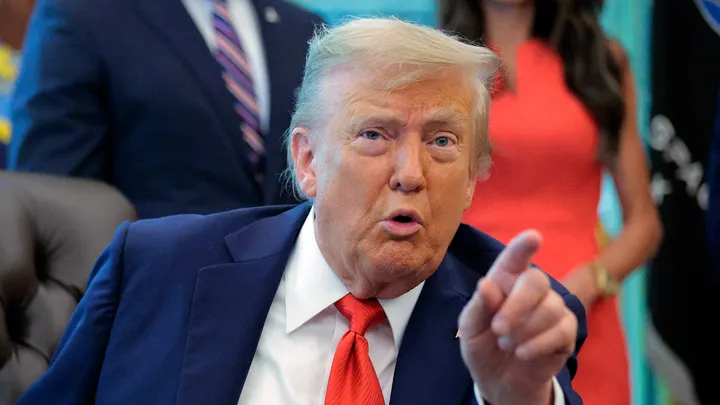Trump Administration Plans 4-Year Limit on Foreign Students in U.S.
For too long, past administrations have allowed foreign students and other visa holders to stay in the U.S. virtually indefinitely, posing security risks, draining taxpayer dollars, and disadvantaging U.S. citizens,” the spokesperson said. “This new proposed rule would end that abuse once and for all.
Trump Administration Plans 4-Year Limit on Foreign Students in U.S.
The Trump administration has announced plans to impose new restrictions on foreign students, proposing a rule that would cap the length of their stay in the United States at a maximum of four years.
The proposed rule, set to be published by the Department of Homeland Security (DHS), would end a decades-old policy that allowed international students to remain in the country for the “duration of status” — essentially, for as long as they were enrolled in a full-time academic program.
According to DHS, the new regulation seeks to curb what it describes as “visa abuse” and to enhance the government’s ability to properly vet and monitor foreign nationals. A DHS spokesperson argued that some students have exploited America’s generosity by remaining indefinitely enrolled in colleges, becoming so-called “forever students.”
“For too long, past administrations have allowed foreign students and other visa holders to stay in the U.S. virtually indefinitely, posing security risks, draining taxpayer dollars, and disadvantaging U.S. citizens,” the spokesperson said. “This new proposed rule would end that abuse once and for all.”
Under the proposal, foreign students and exchange visitors could remain in the country for the duration of their program, but never longer than four years. This would potentially affect students pursuing education beyond a bachelor’s degree, as many graduate and doctoral programs exceed four years.
The rule would also affect foreign journalists, limiting their initial admission period to 240 days, with the possibility of one extension of up to another 240 days — not exceeding the length of their professional assignment.
DHS maintains that requiring periodic assessments for extensions would strengthen oversight and reduce the overall number of people living in the U.S. on long-term visas.
However, education advocates warn that the rule could have unintended economic and academic consequences. International students, who typically pay higher tuition fees and receive fewer scholarships, contribute significantly to U.S. universities and the broader economy.
Fanta Aw, executive director and CEO of NAFSA: Association of International Educators, criticized the proposal, warning it would discourage international students from choosing the U.S. as a destination.
“It will certainly act as an additional deterrent to international students choosing to study in the United States, to the detriment of American economies, innovation, and global competitiveness,” Aw said in a statement to POLITICO.
If finalized, the regulation could mark one of the most significant changes in U.S. student visa policy in more than four decades.










